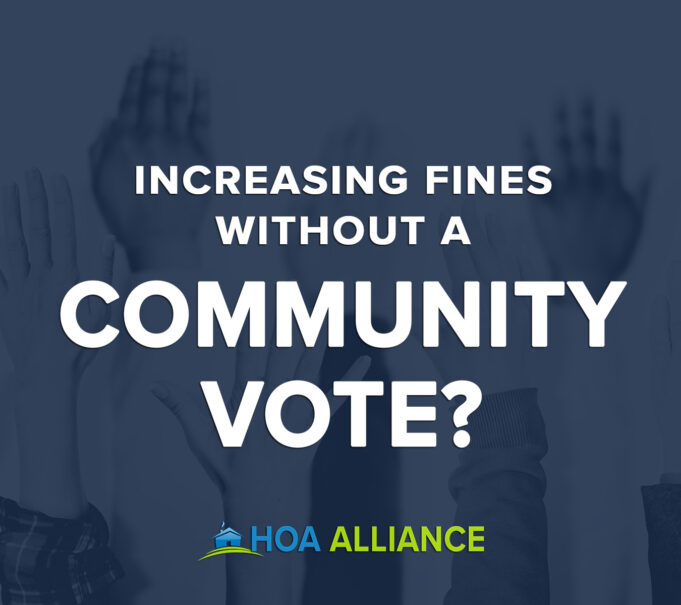In most cases, the authority of the board of directors of a community association to increase fines without a community vote will depend on the specific provisions of the association’s governing documents, such as the bylaws, rules, and regulations.
If the governing documents grant the board of directors the power to set and adjust fines, then the board may be able to increase penalties without a community vote. However, if the governing documents require a membership vote to increase fines, then the board may not have the authority to do so unilaterally.
It’s also worth noting that even if the board has the authority to increase fines, they are still subject to specific legal requirements, such as providing notice and an opportunity for affected parties to be heard before imposing or increasing fines. The board should also ensure that any penalties or fines are reasonable, not arbitrary or excessive.
If there is any uncertainty about the board’s authority to increase fines, or if there is disagreement among board members or the community about the appropriateness of a proposed fine increase, it may be advisable to consult with legal counsel or seek guidance from the association’s governing documents.
Source: Georgia HOA Alliance











